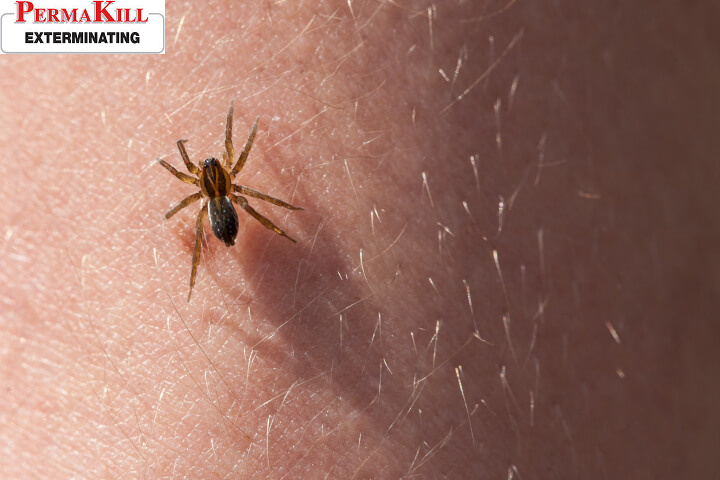


While spiders may not do as much harm to your home as some pests do, they can be a nuisance and may pose a health risk, as several species are venomous, including black widow spider, hobo spider, and brown recluse spider.
If you get bitten by a spider in this case, there are various ways to treat the bite immediately at home to help lessen its effects.
What do you put on a spider bite? Some effective remedies are readily available in your pantry.
Remember that as soon as you notice spider bite symptoms like itching, redness, and swelling at the site of the wound or have seen that a spider bit you, wash the bite area with soap and cold water, then pat it dry with a clean towel.
If you feel confident that it's a non serious spider bite, you may proceed with applying any of these natural treatments.
Baking soda or sodium bicarbonate has various uses, from cooking to cleaning and even personal care.
Interestingly, it can also help relieve pain and itching from spider bites as it acts as an anesthetic. To use this miracle compound, prepare a paste by mixing water and baking soda.
Apply the paste to the bite, let it penetrate for about five minutes, and then wash it off. You’d want to repeat the application several times throughout the day for maximum effect. This paste can also be used for an insect bite or bug bite.
Another all-natural spider bite treatment is turmeric, a root that belongs in the ginger family. It's commonly used as a food flavoring and widely regarded as a potent anti-inflammatory, fighting all sorts of toxins.
You can use any form of turmeric for spider bites, be it capsule or powder, to make a paste by blending it with some olive oil. Apply it on the bite site and let it sit there for about an hour. Do this more often a day to reduce inflammation and bite pain.
Similar to turmeric, aloe vera is known for its medicinal properties. The thick leaves of the aloe vera contain a gel-like substance that’s loaded with fatty acids, minerals, and other healing compounds.
The best way to use this natural remedy is to take a leaf from a plant, cut it open, and directly apply it to the bite. If you don't have aloe vera in your garden, you can purchase one from the store, which usually comes in a container such as a tube.
Aloe vera can also help with a mosquito bite. It brings immediate relief as it has a slight cooling effect on the skin. It has also been proven effective at reducing erythema or the redness that accompanies skin irritation, whether from a mosquito bite or sunburn.
Not known to many, potatoes could help with spider bites. This versatile root vegetable contains anti-inflammatory compounds that can help with insect bites. You could get a slice of potato and put it on the bite using a bandage or mash it and apply it to the bite before you put a bandage.
Learn More: Plants That Repel Spiders
If you prefer to use medications, you may rely on several at-home solutions for spider bites:
If you're concerned about your spider bite and suspect that it's from a venomous spider, you should quickly consult an expert at a poison control center. It would help if you never underestimate a venomous spider bite as it can be life-threatening. The specialist will recommend that you:
These can be clinical signs that the spider venom is spreading through the body. You’re experiencing envenomation, which occurs when a poisonous secretion is injected into the victim by bite or sting of an insect or arachnid. It's important to note that black widow envenomation affects the whole body, resulting in muscle tremors and other neurologic effects.
At the same time, the brown recluse bite causes local tissue destruction or dead skin. Brown recluse spider venom has sphingomyelinase D, which is a substance that interferes with blood clotting at the bite site. Additional toxins are injected into the bite victim as well. This contributes to inflammation and tissue necrosis.
If you suffer from any of these, you'll want to go to the emergency room where doctors may administer intravenous fluids or even perform surgery to repair the wound. In severe cases, doctors may give you an antidote or antivenom, which contains antibodies that help neutralize the venom's toxic effect.
There's no antidote for the venom from a brown recluse spider bite, but there’s one for the venom from a black widow bite. Research involving 163 persons with moderate to severe symptoms from a black widow spider bite, all of which were treated with the said antivenom, shows that they experienced relief of symptoms within 31 minutes on average.
But this antivenom has also been associated with severe allergic reaction, so it's not advised for patients with asthma or atopy (people who are genetically likely to develop allergic diseases).
A bite from venomous spiders and poisonous spiders can also cause allergic reactions or anaphylactic shock, which can be fatal. If you encounter any of these symptoms, seek medical help as soon as possible:
If you feel any of these reactions and have epinephrine on hand, don't hesitate to use it, even if you're not sure allergies cause your symptoms. An auto-injector pen as a precautionary measure won't be harmful to you.

The best way to stop spider bites, particularly those from a venomous or poisonous spider, is to deter spiders. Keep the creepy crawlers away from your home by keeping your property clean.
Spiders love to hide in neglected dark places, and any leftover food will invite insects that will attract more spiders. Dusting and vacuuming away cobwebs and egg sacs will make spiders less keen to return.
Getting rid of plant matter and debris from around your home will also work as a preventative way as fewer spiders can move inside. It's also important to seal up the edges of windows and gaps indoors, which will make it much more difficult for them to find an entry point.

Spiders are a threat to homeowners due to their venom that can cause severe reactions. These reactions usually are most severe in children or the elderly or people with compromised immune systems.
This said, it's important to keep these invaders away from your loved ones.
If you decide to make your move, it's best to seek the help of experts. At PermaKill Exterminating, we’re fully dedicated to giving you excellent service in the form of a peaceful, secure, and pest-free space. Call PermaKill Exterminating for a one-time service or seasonal plans and allow us to exceed your expectations.